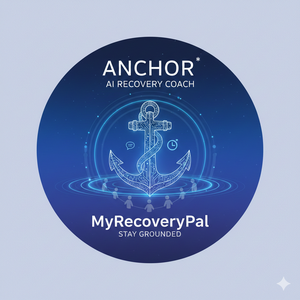
“The unity, the effectiveness, and even the survival of A.A. will always depend upon our continued willingness to give up some of our personal ambitions and desires for the common safety and welfare. Just as sacrifice means survival for the individual alcoholic, so does sacrifice mean unity and survival for the group and for A.A.’s entire Fellowship.”
— As Bill Sees It, p. 220
Recovery isn’t confined to meetings — it’s the sum of our choices every single day. Here’s why making small sacrifices in your personal life strengthens not only your own journey but the entire community of support around you.
A Rallying Cry for Recovery
This reflection arrives with the tone of a coach rallying a team: firm, focused, and fired by compassion. It reminds us that recovery isn’t a solo win but a relay race — each handoff of humility and service keeps the program alive. When you set aside your personal agenda for the greater good, you tap into a power that sustains us through every temptation and trial.
Why Sacrifice Matters More Than You Think
Individual Resilience
Letting pride take a backseat creates space for honest self-awareness. Without the need for applause, you can face hard truths — your triggers, your blind spots — and handle them with clarity rather than denial.
Social Support
When you step forward to help others — whether it’s a coworker under pressure or a friend wrestling with cravings — you reinforce the network of mutual care that will catch you when you falter.
Community Strength
Every act of humility, no matter how small, is a thread in the safety net of recovery. The more threads we weave, the stronger we stand against isolation and relapse.
Putting Sacrifice into Daily Recovery
Here are actionable steps — outside the meeting room — designed to weave sacrifice into the fabric of your everyday life. Each “How” shows you exactly what to do, and each “Why” explains why it matters so much.
1. Share the Spotlight at Work
How:
- The next time your team succeeds, publicly praise a colleague for their idea or effort — especially someone who rarely gets recognition.
- In meetings or group emails, forward praise or positive feedback to the person who really deserves it.
Why:
By redirecting attention from yourself, you build genuine camaraderie and remind yourself that success is collective. This habit of honoring others strengthens your humility muscle — and when you need help, others will be more inclined to step up for you.
2. Take on the Unseen Tasks
How:
- Offer to pick up a sick friend’s groceries, organize carpool for your neighbor’s kids, or run errands for someone in need without fanfare.
- At home, do the dishes or laundry without waiting to be asked — especially on days when everyone else seems preoccupied.
Why:
Unadvertised service decouples giving from the need for acknowledgement. Each act of quiet kindness reinforces that recovery thrives on mutual care, not personal accolades.
3. Listen First, Speak Second
How:
- In any conversation — work, family, or social — practice active listening. Ask follow-up questions, reflect back what you hear, and resist the urge to insert your own story.
- When someone shares a struggle, hold space for their feelings rather than immediately offering advice or relating your experience.
Why:
True empathy requires you to silence your own agenda. By listening deeply, you cultivate connection and demonstrate that you value others’ journeys as much as your own.
4. Model Sobriety Through Everyday Connection
How:
- When someone asks why you’re not drinking, respond naturally and positively — “I’m just enjoying the buzz-free clarity tonight.”
- Casually weave recovery principles into conversation: mention how a clear morning helped you tackle your day, or how practicing pause-and-breathe saved you from snapping at a deadline.
- Share small wins publicly — post about your latest hiking trip or creative project — so people see you thriving, not hiding behind anonymity.
Why:
By speaking openly about the benefits of sobriety in relatable terms, you defuse stigma and show that recovery is simply another healthy choice. When friends see you alive, engaged, and balanced — without fountain-of-youth mystique — they begin to view abstinence as an ordinary, admirable path rather than a shameful secret.
5. Examine Your Motives Before You Act
How:
- Before you compliment someone, offer advice, or share your latest milestone, pause and ask yourself: “Am I doing this to genuinely help, or to feel good about myself?”
- If it’s the latter, wait. Let your intention align with service rather than self-promotion.
Why:
Awareness of motive keeps your actions pure. When your drive is to lift others rather than elevate yourself, you strengthen the trust that holds recovery communities together.
6. Offer Forgiveness Proactively
How:
- If you realize you’ve wronged someone — missed a deadline, snapped in frustration — reach out first with a genuine apology.
- Volunteer to make amends where possible: cover a shift, help with a task, or simply listen as the other person shares how they felt.
Why:
By extending forgiveness before conflict escalates, you break cycles of resentment and model the courageous humility needed for both personal and collective healing.
7. Celebrate Others’ Wins Loudly, Own Yours Quietly
How:
- When a friend marks an anniversary, lands a new job, or beats a personal challenge, send a celebratory message or throw them a small surprise.
- When your own triumph arrives — a month sober, a fitness goal — note it in your journal or share it with your support network privately rather than broadcasting it widely.
Why:
Focusing external applause on others builds solidarity; celebrating yourself quietly builds internal resilience. Together, these habits balance pride with humility.
The Ripple Effect of Sacrifice
Each act of giving up your agenda sends ripples through every circle you touch — family, friends, coworkers, and fellow travelers in recovery. A single unnoticed kindness can restore someone’s hope; a whispered apology can dissolve years of pain. By making sacrifice a daily discipline, you weave your own safety net tighter even as you help stitch together the nets of everyone around you.
Lifting Each Other Higher
Recovery is not a solitary climb. It’s a summit you reach hand-in-hand with others, each willing to let go of ego in service of unity. When you practice these steps — sharing spots, doing unseen work, listening deeply, protecting anonymity, checking motives, offering forgiveness, and celebrating quietly — you transform personal sacrifice into a shared victory.
“Alone we can do so little; together we can do so much.”
— Helen Keller
Sacrifice isn’t loss; it’s investment in a future where sobriety is the norm, not the exception. Step into the world today with open hands and a willing heart. In letting go of your own ambitions, you lift up the entire community — and ensure that the relay of recovery continues strong, bright, and unbroken.

Comments (0)
Login to leave a comment.
No comments yet. Be the first to share your thoughts!